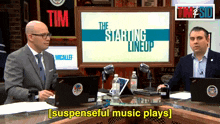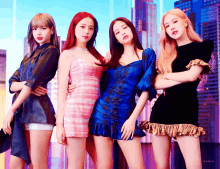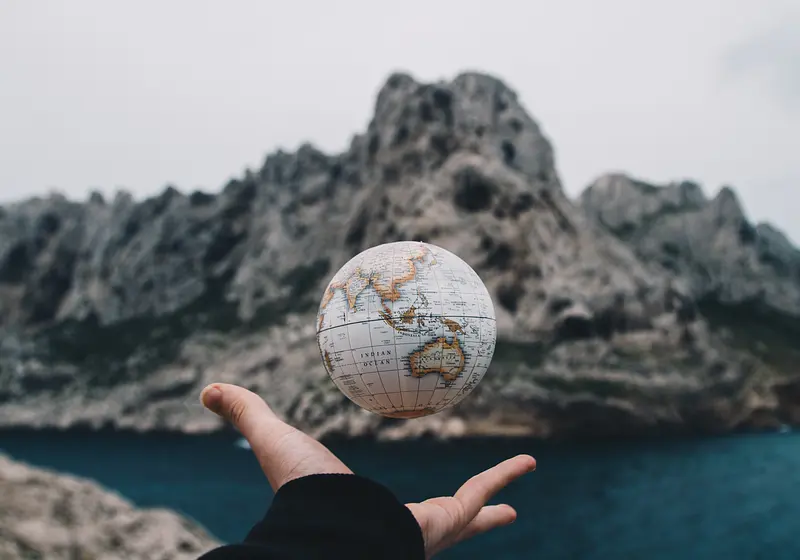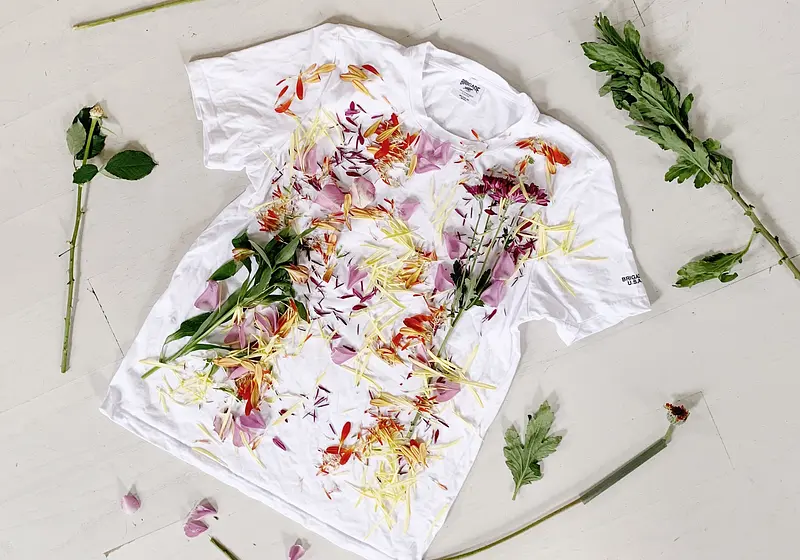You've probably seen Nathalie Kelley on shows such as Dynasty, The Vampire Diaries or The Fast and Furious franchise, but did you know that Nathalie has always had a passion for environmental activism?
Being a figurehead for the fashion industry, Nathalie talks about reckoning with the damage we are causing to the planet and the steps we need to take next. We sat down with her to hear more.
Let us slide into your dms 🥰
Get notified of top trending articles like this one every week! (we won't spam you)The Fashion Industry and Climate Change
The #NoNewClothes campaign has become increasingly popular on social media platforms, with many users pledging not to buy new clothes for a whole year. With the fashion industry having such a devastating effect on the planet combined with its well-documented human rights abuses, this couldn't have come at a better time.
In 2019, Nathalie pledged to take part in this challenge, refusing contracts with fashion companies who weren't sustainable and vowing not to promote fast fashion on her platform.
“Until I took the pledge last year, I was the worst offender when it came to over-consumption and buying things I didn't need. I was a really thoughtless consumer of clothes.”
— Nathalie Kelley
She has also documented her #NoNewClothes journey on remake, expressing her anger at the industry and what it's like coming to terms with the challenges we are facing.
"It is very tough to try and fight back against these industries," Nathalie notes, "while also being able to function in the society that we live in."
“When I allow the scale of the problem to sink in, I feel disillusioned about the futility of my personal #NoNewClothes challenge. And while I hope my journey has inspired more than a few of you, I also feel rage at the larger industrial fashion complex”
This is something many people are experiencing. As natural disasters become more common and volatile, eco-anxiety and depression cases have grown exponentially across the world.
Feelings of despair, hopelessness and anxiety are common traits among people witnessing the events unfolding across the globe.
“Why should all the responsibility be on the consumer? Where is the fashion industry’s accountability for the damage they are doing to our earth and our bodies?”
— Nathalie Kelley (via re-make)
The cycle of constant consumption is not an accident, it is the result of billions of dollars being siphoned into PR campaigns and greenwashing strategies, making sure you remain a 'mindless consumer'.
Many brands like to think of sustainability as a simple box-ticking exercise, hedging their bets that small, incremental changes will satisfy their consumer base.
Instead of taking radical, necessary action, corporations are employing a multi-pronged campaign to make sure climate action remains subdued and muted within the industry.
“We are constantly bombarded with these messages, that if you just buy this, or you just wear this trend, then other people are going to like you more, and you're going to be happy”
— Nathalie Kelley
The transition to a sustainable future does not have be boring, Nathalie points out,“[we need to] redesign it and become much more creative in the process.”
“Let's really show our creativity by not conforming to the status quo, not being little zombie consumer robots that they are trying to program us to be.”
“Lets redesign a new, fashionable world we want to live in. One that is just, not just for the people who make our clothes but for the Earth as well.”
— Nathalie Kelley
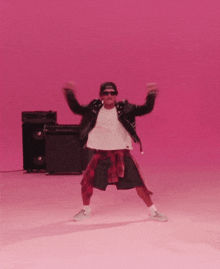
Take the Quiz: Which Bruno Mars Jam Matches Your Vibe?
Find out which Bruno Mars hit perfectly captures your unique style and energy!
The Australian Wildfires
The massive fires in the beginning of 2020 served as a wake-up call to millions around the globe, offering a terrifying insight into what our future could hold, unless we halt carbon emissions.
Nathalie was born in Lima, Peru, before moving to Australia at the age of two. She has roots in Argentina, Peru and Australia, all places on the front line of climate change.
“What was it that drew you to take such a stand for the environment, was there any sort of event that really effected you?”
“At the beginning of 2020,” she began, “I flew back home to Australia, but it wasn't like any other year.”
“I had landed in the middle of what was the biggest wildfire season in Australia's recorded history”
“18 million hectares burnt, one billion animals died. One billion animals burnt, I remember that smell.
I will never forget that smell.”
“I'm not ashamed to say I have PTSD... I couldn't see the sky because it was blacked out with smoke. That was enough to give me PTSD because I knew I was looking into what could be our future, if we don't turn things around.”
— Nathalie Kelley
“We need to start changing the way that we live, that we shop, that we eat, that we vacation. Everything has to change. Climate change is here.”
“Australia has always been a country of wildfires, that's part of its terrain. But the Aboriginal people, who have lived there for 65 million years, they knew how to work with the natural terrain. They knew how to use fire as a force of regeneration.”
“While [the wildfires] were traumatic, I am grateful for the experience that I took from it, because my life will never be the same. It led me to commit myself to telling these stories and trying to shift the narrative around these issues.”
— Nathalie Kelley
Looking for Hope in Indigenous Practices
When you hear Nathalie talk about Indigenous practices, you can't help but tune in. The passion and emotion behind her messages can make even the most uninterested person listen.
When asked about what brings her hope when faced with the imminent problems we face, she tells us to look to our ancestors.
I spend a lot of time thinking about my Peruvian ancestors and how at the height of the Inca empire they were feeding up to 10 million people! They did so without pesticides and GMO seeds. They had sophisticated farming practices that we are now calling “Regenerative Agriculture”
— Nathalie Kelley via Instagram @natkelley
An example she uses is about the Amazonian tribes from many thousands of years ago. Thanks to modern day science, we can now track the history of the Amazon Rainforest.
“What they are discovering is that there are parts of the Amazon Rainforest that were planted by people! It is not just this random coincidence that there is a massive rainforest there.”
“Humans, at one point in our history, were building biodiversity. What a thought to leave you with.”
“It is actually in our DNA, as humans, to build biodiversity, to help the Earth instead of destroying her.”
— Nathalie Kelley
It's practical to live in a state of balance with nature, Nathalie points out, “It isn't just a little woohoo thing I'm putting out there, there is a way to live in a mutually beneficial way with the Earth. Where she is feeding us, and we are feeding her.”
The Need For Regenerative Farming
It's no secret that the soil is ill. Thanks to decades of intensive pesticide use and harmful farming techniques, lots of our soil has become degraded and void of life.
“The reason we are all so sick right now is because the soil we are growing food in is sick,” Nathalie begins.
“Sick soil equals sick humans.”
— Nathalie Kelley
“That's why I look to our ancestral ways of farming. They didn't need fertilizers, pesticides or tractors. They managed to feed an entire civilization, the Incas, through sophisticated farming techniques. They actually used nature and its natural technologies, in order to maximize efficiency and nutrient density.”
The Fungi Foundation
When you think about Fungi, you probably think of something that is undesirable and that needs to be removed or destroyed. However, Nathalie wants to shift the narrative when it comes to talking about Fungi.
Instead of listening to the messaging we've received over the years, she wants us to pay attention to the beauty and importance of Fungi in our society.
“I definitely didn't know this either, so everyone is forgiven for not knowing about the importance of Fungi.”
“We would not be here without Fungi. We actually evolved from Fungi, they were some of the first organisms on the planet”
“ Penicillin was synthesized from Fungi, a medicine which has saved billions of lives since its discovery. Fungi can be the problem to so many of our problems we are facing today.”
— Nathalie Kelley
The Fungi Foundation is a non-profit organization which is on a mission to educate and advocate for the worlds Fungi.
Based in Chile, they have successfully pushed for Fungi to be recognized along with Flora and Fauna in all environmental impact studies. This means that corporations now have to make sure that their practices and projects aren't harming the local Fungi population.
Nathalie joined the Fungi Foundation as a board member in 2019.
“We have only discovered around 5% of the worlds Fungi species. That is 95% of species with a wealth of information and possibility, just waiting to be unlocked.”
What Movie or Documentary do you think everyone should watch?
“Kiss The Ground and Fantastic Fungi!”
“Fantastic Fungi really woke me up to the potential of Fungi and Kiss The Ground is just such a beautiful documentary.”
Kiss The Ground is available on Netflix, Fantastic Fungi is streaming now on their website.
“For those fashionistas, I recommend watching The True Cost Of Fashion!”
“I also recommend reading Lo-Tek by Julia Watson, and We Are The Weather by Johnathan Safran Foer.”
On Reducing Meat Consumption
The issue of reducing our meat consumption is a charged and polarizing conversation, but it is one that we need to have.
“Look, I was somebody who was a big meat eater, there was nothing I loved more than the taste of a burger. I'm not going to lie! It's in our DNA, we evolved eating meat.”
“But our demand for meat, coupled with our lack of awareness around how that meat is brought to us is destroying the Earth.”
— Nathalie Kelley
“So I'm not saying everybody needs to go vegetarian, liked I decided to do! What I am so, however, is that if you do care about this planet and if you want our children, and our children's children to have a future on this planet, we really need to look at our meat consumption and lessen it.”
“It isn't a right, it's a privilege to eat meat. So please, consider limiting your consumption. Even if all you can do is go vegetarian one day a week, please try it.”
“All the fertilizers and pesticides we are injecting into these animals is all running of into the oceans, creating dead zones where nothing can live.”
— Nathalie Kelley
The One Message Nathalie Kelley Has For Our Readers
We asked Nathalie what one message could she give you, the reader. She paused for a moment, taking time to mull over the challenges we are facing as a species.
“Understand that everything is interconnected. Everything we do, buy and eat has an impact on the planet.”
“Ask yourself, do you want that impact to be positive or negative. From there you can do your research on how to be either one.”
— Nathalie Kelley
Nathalie eloquently describes both the problems we are facing, and the many solutions we have to solve them. You can tell that she is truly passionate about what she is talking about and her enthusiasm for finding the answers to our problems is infectious.
Despite the many problems we face, Nathalie's message is one of hope. There is still time to save our planet, but the window for action is closing quickly.
However, you can always start with little actions by donating to The Fungi Foundation here!



